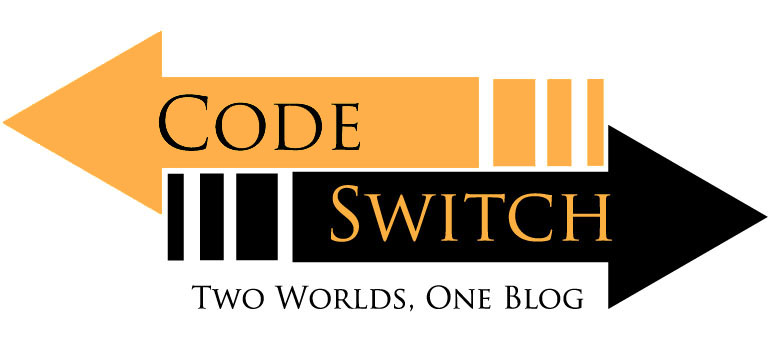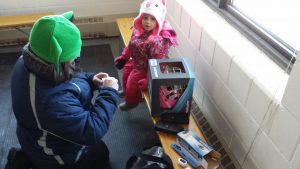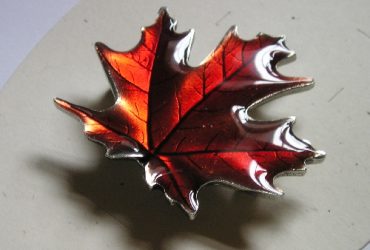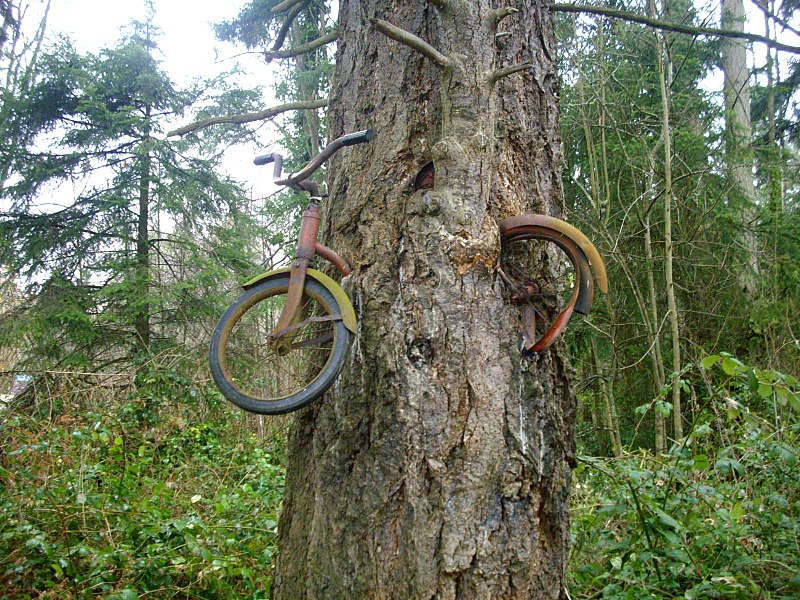I’ll be filling in for James this week, taking this opportunity to remind you that I’m Canadian, how Canadian I am, how great I think Canada is, and a brief history of being Canadian. Seriously.
As mentioned yesterday, I’ll be joining the blog team with the return of Third Party People and my new blog, Keyword Design, in which I take a single word and design a bunch of Pathfinder options based on that word. The first word I’ll be using is “Canada,” inspired by a conversation about adapting cultures* to Pathfinder. Some cultures have lore, history, and culture that define them; Greek mythology, Cajun mysticism, the Japanese feudal period. These cultural touchstones have inspired works of fantasy fiction and, of course, RPG options. But adapting elements of a culture can be tricky, both for insiders and outsiders to that culture. For example, here are the most Canadian moments I had in recent months:
- Broke the scraper on my brush, had to alternate between that brush in one hand and the scraper end of a broken brush in the other;
- Researched Keanu Reeves’ background to see if he is Canadian enough to call Canadian;
- Having a waitress arrive with our bill, hesitate, and stare at us blankly before saying “English?”
“Yes…”
“Yes, right! Will that be all?” - Having the “Why do you call yourselves ‘Americans’?” conversation with Alex, a question every Canadian has pondered but Alex had never considered;
- Explaining that Montreal’s “Underground City” is just a series of malls connected by underground passageways to a visiting Reaper Bryan, who pointed out that where he’s from, they don’t have basements, so this still sounds super cool to him.
- Talking with Tina about whether we should send Scarlett to school in English or French, knowing that the law in Quebec would prohibit her children from attending school in English because their parent went to school in French. Scarlett’s not even 2.
Some might seem like exactly what you’d expect. Others you might not have considered but you get upon reading them. And others might still not make sense even after they’re explained to you. Why would Canadians care if Keanu Reeves is Canadian enough to call Canadian? Well we do. Very much. Absent from the list? Hockey, Mounties, beavers, or… I don’t know, socialized health care? I either don’t interact with them with any frequency, or I interact with them with such frequency that I don’t even think about them. Pardon me while I refill my class of milk from a bag before I relate this back to Pathfinder.
Ah, bagged milk. Why would anyone serve you any other way?
If you’re going to adapt a culture other than your own, ask yourself “Is this how Vince McMahon would portray this culture?” If the answer is yes, you’ve done something very wrong. To avoid this kind of embarrassment, keep in mind these five rules for adapting a culture to an RPG:
- Minestrone soup for breakfast;
- Gumbo;
- Canadian bacon;
- Milk bags;
- Water?
Minestrone Soup for Breakfast
One of the hotels I stayed at in Japan served an American breakfast. Japanese cuisine was a major motivation for this trip so I didn’t jump at the chance for an American breakfast, but the third morning at this particular hotel, I decided to give it a try. According to this Japanese hotel, an American breakfast includes:
- Eggs;
- Bacon;
- Spaghetti marinara;
- Minestrone soup;
- Toast.
What you need to understand is that it’s common to have miso soup and rice with breakfast in Japan. This was a 1:1 substitution for the Japanese breakfast, while still applying the Japanese way of thinking about breakfast. It’s like the Scots in Braveheart going to battle in kilts, which is like an American soldier going to war in a tuxedo. It’s taking an authentic element of a culture and applying it with no or the wrong context.
Gumbo
Gumbo is one of the only cuisines that is only available in the United States or restaurants with an American theme. In game design terms, gumbo is an option that sums up an entire culture in a single option that is unique to that culture but is not representative of the entire culture. It’s the difference between thinking of gumbo as an American food and thinking of American food as gumbo. GI Joe is guilty of gumbo; every Asian character on the team is some form of martial artist except Tunnel Rat. While Asian countries produced the world’s most famous martial arts, they’ve also produced many things other than martial arts.
Canadian Bacon
From the Canadian Bacon Wikipedia article, “back bacon is a traditional British cut of typically unsmoked bacon,” and “”Canadian bacon” is American usage for a form of roughly cylindrical fully cooked back bacon, usually smoked, trimmed into medallions, and thickly sliced.” So “Canadian Bacon” is an American name for a British cut of bacon. Absent from Canadian Bacon? Canada.
A good example of a Canadian Bacon option is the Pathfinder ninja. Yes, there were intelligence gatherers who occassionally assassinated targets in feudal Japan, and one of the names for them was “ninja”, but everything that comes to mind when you hear the word “ninja” is based on mostly American pop culture.
Milk Bags
Now we’re talking!
Shoot, or maybe we aren’t. A milk bag option was going to be my “authentic to the culture from the culture’s point of view” example, but I did a little research and it ends up bagged milk is Eastern Canadian. Western Canada probably sees these Canadian milk bag memes and wonder where that crazy idea comes from as they sip their milk which was poured from a carton. That’s what happens when you try to sum up the world’s second largest country as though it’s an American city. There’s very little that I can say is the Canadian experience fully confident that people from the Maritimes, the prairies, and the territories could identify with equally.
Water?
In an anecdote I learned in teacher’s college, a frog swims by two fish and says “water’s great today.” One fish turns to the other and asks “What’s ‘water’?” A water? option is more authentic than the culture might like to admit. You’ll get Canadians denying that we say “eh”, which is not true. Parodies often miss the point of how to use “eh” properly, but we do say it.
This isn’t to say any of the above options are the wrong way to adapt a culture to Pathfinder. Even Canadian Bacon options, although I’d recommend only basing options that are provably false about a culture if it’s going to be done tongue in cheek, or if you feel compelled to. I know I want my Pathfinder ninja to read like Storm Shadow, not a feudal Japanese CIA agent, and of course if there’s going to be a Canadian Teenage Mutant Ninja Turtle character, he’s going to be a mutant moose Mountie. It’s just nice when a Wolverine or a Robin Scherbatsky shows up, a Canadian character that I can recognize the Canadian in them without their only purpose and character train being Canada. That’s because it’s important to balance the Canadian Bacon with milk bags. If the culture you’re adapting isn’t your own, be mindful of how much gumbo and minestrone soup for breakfast you serve. If it is your culture, you might need more water? than you thought. I mean, I literally took a break from writing this article to go skating with my dad, brother, Tina, and Scarlett at the rink the city put up at the park near my house.
Join me tomorrow for the inaugural Keyword Design to see how I turned Canada into a mundane item, a magic item, a feat, a spell, and an archetype! Also, see if I regret accidentally scheduling myself to write the first three blog posts of the year.
*Culture, in this case, is a catch all for people grouped by continent, country, city, language, religion, etc. It’s the broadest term I could find for a people.







Nice article, Ryan.